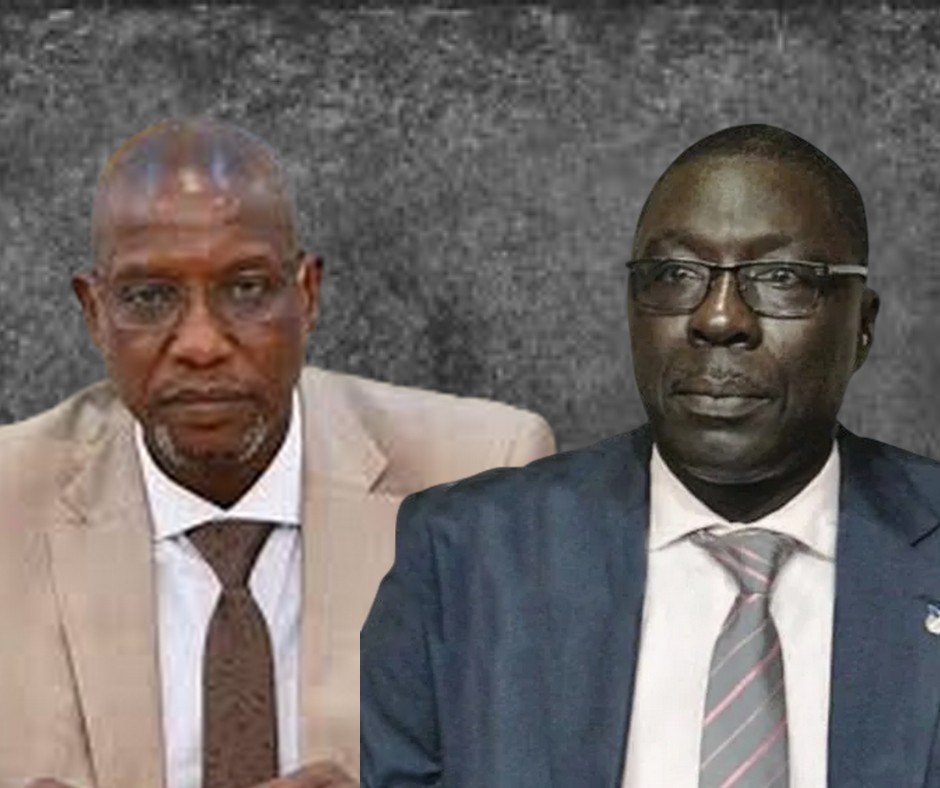The National Assembly’s recommendation to reprimand Interior Minister Abdoulie Sanyang and Tourism Minister Abdou Jobe over the contentious 30 million dalasis Russian oil scam is not legally binding, according to Attorney General and Justice Minister Dawda A. Jallow.
In response to a petition submitted by the Gambia Against Looted Assets (GALA), Minister Jallow emphasized during a government press conference that parliamentary decisions have advisory value but do not require executive action.
Now, the two ministers, in regards to the parliamentary resolution, you must first comprehend that parliamentary resolutions are recommendations on government; they are not legally binding, he clarified.
He added that the National Assembly simply suggested condemnation for the two ministers, not their dismissal. “Best practices dictate that we collaborate with parliament and observe their implementation.” On the other hand, parliament did not advise the president to fire the two ministers. “They suggested censorship,” he stated.
The censure procedure is solely a parliamentary role and cannot be started by the executive branch, according to Justice Minister Dawda A. Jallow. He described the constitutional process, stressing the value of evidence and due process.
Censure is a parliamentary procedure that must be started by parliament, not the executive branch, and carried out by parliament itself. Additionally, he stated that since censure must be supported by proof, the parliament must start a petition from inside that will be signed by all members and sent to the president.
He said the president must notify the affected ministers within two weeks of the petition being served. The grounds for censure are then discussed during a legislative debate. Before MPs cast their final decision, the involved ministers have the opportunity to reply.
Two weeks following the date of the censure and the serving of the petition, the president will serve the two ministers in question. The grounds for the censure will be discussed in parliament, and the ministers in question have the right to respond. Since these are still accusations, they have the right to reply. Parliament will hold a vote after they respond,” he stated.
The minister emphasized that maintaining the rule of law is crucial in The Gambia and advised against acting hastily based only on allegations. According to him, a censure can only be effective if it is backed by a legislative vote; if the vote is unsuccessful, the procedure is over.
The censure then becomes effective after the vote is carried. The censure fails if the vote is not carried. Recall that everyone in this nation longs for the rule of law; we cannot simply declare that someone is accused of something and take action. People have the right to reply, so we must give them the benefit of the doubt.
They have a right to tell their side of the story, which is what we all want, and anyone may experience this,” he said.
He emphasized that only parliament has the power to start a censure procedure and noted that the ministers have the right to defend themselves.
Any allegation has the potential to harm us. Are we suggesting that as soon as someone is implicated, they have no right to defend themselves or to reply? If parliament desires it, they can start the censorship process against the ministers in question, he said.


